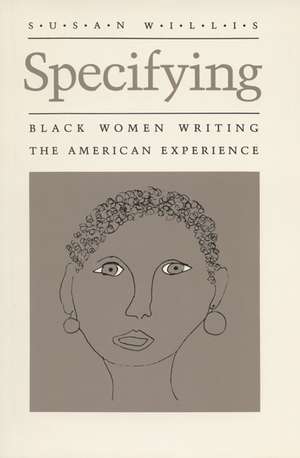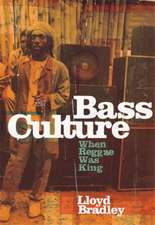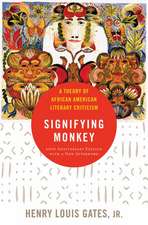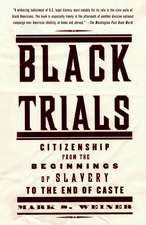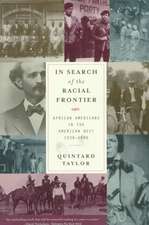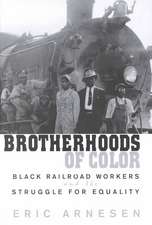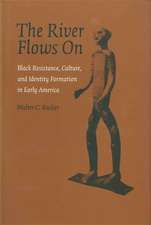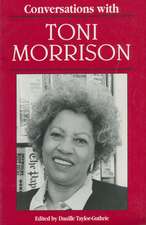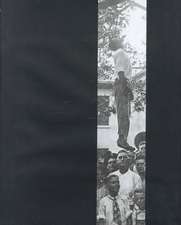Specifying: Black Women Writing the American Experience: Wisconsin Project on American Writers
Autor Susan Willisen Limba Engleză Paperback – 15 noi 1989
With a series of brilliant and provocative essays, Susan Willis has produced the first sustained, book-length study of fiction by contemporary American black women writers. Using a Marxist approach, Willis places the work of Zora Neale Hurston, Paule Marshall, Alice Walker, Toni Morrison, and Toni Cade Bambara in a critical context that includes history, culture, politics, and literary theory. Willis’ work promises to make a major impact among scholars, students, and general readers interested in contemporary fiction, Afro-American culture, women’s studies, American studies, and the conjunction of literary and political theory.
The tradition of literary criticism about black women writers has, until now, focused primarily on establishing the existence of these writers and defining the contexts within which they may be appreciated. Willis goes further by looking at the literary ramifications of particular themes that run throughout the works of major writers in this tradition—her most pivotal one being the movement from the past to the future, from girlhood to womanhood. Her approach is different from those of previous works in that she focuses strongly on these writers’ literary modes—narrative, metaphor, etc.—and demonstrates how these modes are themselves essential aspects of their ideas as well as their process.
Willis establishes that the novelists she treats are not only historians who document the problems of capitalist industrial society but also visionaries who imagine for their characters alternative modes of work, community, and economy, toward which readers may look as they approach the future.
The tradition of literary criticism about black women writers has, until now, focused primarily on establishing the existence of these writers and defining the contexts within which they may be appreciated. Willis goes further by looking at the literary ramifications of particular themes that run throughout the works of major writers in this tradition—her most pivotal one being the movement from the past to the future, from girlhood to womanhood. Her approach is different from those of previous works in that she focuses strongly on these writers’ literary modes—narrative, metaphor, etc.—and demonstrates how these modes are themselves essential aspects of their ideas as well as their process.
Willis establishes that the novelists she treats are not only historians who document the problems of capitalist industrial society but also visionaries who imagine for their characters alternative modes of work, community, and economy, toward which readers may look as they approach the future.
Preț: 105.18 lei
Nou
Puncte Express: 158
Preț estimativ în valută:
20.13€ • 21.07$ • 16.75£
20.13€ • 21.07$ • 16.75£
Carte tipărită la comandă
Livrare economică 31 martie-14 aprilie
Preluare comenzi: 021 569.72.76
Specificații
ISBN-13: 9780299108946
ISBN-10: 0299108945
Pagini: 196
Dimensiuni: 142 x 218 x 13 mm
Greutate: 0.23 kg
Editura: University of Wisconsin Press
Colecția University of Wisconsin Press
Seria Wisconsin Project on American Writers
ISBN-10: 0299108945
Pagini: 196
Dimensiuni: 142 x 218 x 13 mm
Greutate: 0.23 kg
Editura: University of Wisconsin Press
Colecția University of Wisconsin Press
Seria Wisconsin Project on American Writers
Recenzii
“Any reader even vaguely interested in contemporary Afro-American women’s literature will find Willis’ study immensely informative. Specifying is the most illuminating and theoretically challenging book-length explication to date of the works of one of the most talented groups of writers ever to have graced the American literary landscape.”—Michael Awkward, Michigan Quarterly
Notă biografică
Susan Willis is associate professor of English and the Literature Program at Duke University. She is the author of A Primer for Daily Life, and her articles have been published in a number of edited books, journals, and literary reviews.
Descriere
With a series of brilliant and provocative essays, Susan Willis has produced the first sustained, book-length study of fiction by contemporary American black women writers. Using a Marxist approach, Willis places the work of Zora Neale Hurston, Paule Marshall, Alice Walker, Toni Morrison, and Toni Cade Bambara in a critical context that includes history, culture, politics, and literary theory. Willis’ work promises to make a major impact among scholars, students, and general readers interested in contemporary fiction, Afro-American culture, women’s studies, American studies, and the conjunction of literary and political theory.
The tradition of literary criticism about black women writers has, until now, focused primarily on establishing the existence of these writers and defining the contexts within which they may be appreciated. Willis goes further by looking at the literary ramifications of particular themes that run throughout the works of major writers in this tradition—her most pivotal one being the movement from the past to the future, from girlhood to womanhood. Her approach is different from those of previous works in that she focuses strongly on these writers’ literary modes—narrative, metaphor, etc.—and demonstrates how these modes are themselves essential aspects of their ideas as well as their process.
Willis establishes that the novelists she treats are not only historians who document the problems of capitalist industrial society but also visionaries who imagine for their characters alternative modes of work, community, and economy, toward which readers may look as they approach the future.
The tradition of literary criticism about black women writers has, until now, focused primarily on establishing the existence of these writers and defining the contexts within which they may be appreciated. Willis goes further by looking at the literary ramifications of particular themes that run throughout the works of major writers in this tradition—her most pivotal one being the movement from the past to the future, from girlhood to womanhood. Her approach is different from those of previous works in that she focuses strongly on these writers’ literary modes—narrative, metaphor, etc.—and demonstrates how these modes are themselves essential aspects of their ideas as well as their process.
Willis establishes that the novelists she treats are not only historians who document the problems of capitalist industrial society but also visionaries who imagine for their characters alternative modes of work, community, and economy, toward which readers may look as they approach the future.
